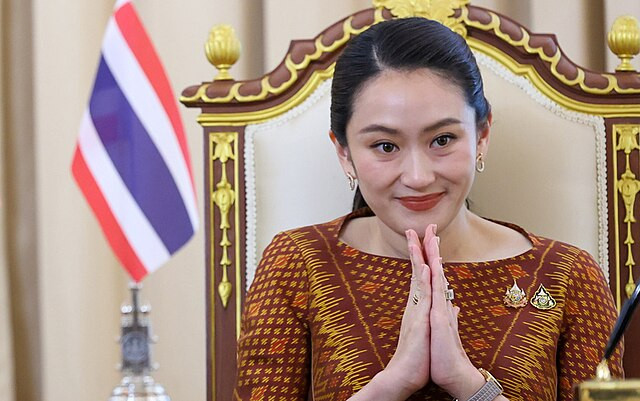Thailand's Constitutional Court on Tuesday suspended Prime Minister Paetongtarn Shinawatra from duty following a leaked diplomatic call with Cambodia's former leader, triggering a political crisis and reigniting tensions between the Shinawatra dynasty and the military-backed establishment.
The court unanimously accepted a petition from 36 senators accusing Paetongtarn of ethical misconduct over a June 15 phone call with Cambodian Senate President Hun Sen, which sought to de-escalate a border dispute that had resulted in a Cambodian soldier's death. During the call, Paetongtarn referred to Hun Sen as "uncle" and disparaged a Thai army commander, drawing outrage from conservative factions and protest groups.
"I only thought about what to do to avoid troubles, what to do to avoid armed confrontation, for the soldiers not to suffer any loss," Paetongtarn told reporters after the court ruling. "I wouldn't be able to accept it if I said something with the other leader that could lead to negative consequences."
The court voted 7-2 to suspend Paetongtarn immediately and gave her 15 days to respond. Deputy Prime Minister Suriya Juangroongruangkit, who also serves as transport minister, will assume the role of acting prime minister while she remains in the cabinet as culture minister following a reshuffle approved earlier Tuesday by King Maha Vajiralongkorn.
The fallout from the leaked call caused a major party to exit the ruling coalition, leaving Paetongtarn with a razor-thin majority and stoking speculation of early elections. Thousands of nationalist demonstrators gathered in central Bangkok over the weekend, calling for her resignation.
Paetongtarn, 38, is the fourth member of the Shinawatra family to become prime minister and the third to face legal or constitutional removal. Her father, Thaksin Shinawatra, was ousted in a 2006 coup and spent 15 years in exile before returning in 2023 to serve a prison sentence for corruption and abuse of power. Her aunt, Yingluck Shinawatra, was removed from office by a court in 2014.
Thaksin, now a central figure behind his daughter's administration, appeared in Bangkok's Criminal Court on Tuesday for a separate case involving alleged lèse-majesté from a 2015 interview. If convicted, he faces up to 15 years in prison. Thaksin has denied the charges and declared loyalty to the crown.
His legal troubles extend beyond the defamation case. The Supreme Court is reviewing whether Thaksin's hospital stay-following his return from exile-complied with sentencing procedures. Though initially sentenced to eight years in prison, he was transferred to a hospital and later granted royal clemency. Critics argue the process allowed him to avoid incarceration entirely.






